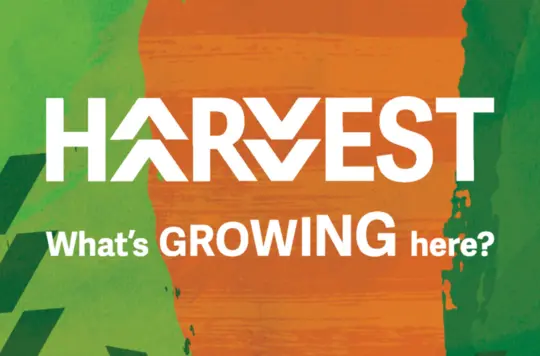17 September 2025
Matthew 6: Holy appetite
Major Paul Hilditch
Major Paul Hilditch thinks about fasting.
Key texts
In previous generations, it was not uncommon to ask if you were ‘keeping well saved’. This question may not often be heard today. However, much of our attention needs to address this topic. It is a question that not only assumes that you are saved, but also enquires how God is working in your life and how you are cooperating with his grace. Spiritual disciplines, then, are what we do to ensure that our relationship with God, in Christ, is healthy.
Pause and reflect
- What do you do to ensure that you are responsive to the promptings of the Holy Spirit?
The Soldier’s Covenant states that, in order to be ‘responsive to the Holy Spirit’s work and obedient to his leading in my life’, and in order to grow in grace, one will worship, pray, serve and read the Bible. These are the concepts that I grew up with. When I mention them today, I usually add that I am much happier reading the Bible than exercising the others. They are all important, but we probably each have preferences.
In the case of the Sermon on the Mount, Jesus assumes that his followers are doing something else – fasting. Jesus does not command them to fast but assumes they already practise it.
As first-century Jews, the followers of Jesus were already committed to the spiritual disciplines of their day. The Temple was a central place of worship, the study of the Torah led to living a life seen to honour God, and the festivals marked out the year.
One major fast was Yom Kippur – the Day of Atonement (see Leviticus 23:26–32). God calls the people to rest
from their work and deny themselves. The concept of self-denial was and is considered primarily one of fasting from food and drink. This kind of fasting may be useful for you. Of course, take care to consider any medical or practical concerns around this. One tip would be to go with a biblical day – from sunset to sunset – which allows a normal evening meal before starting the fast and another the following day after sunset. Jesus assumes that this kind of fasting is the practice of his disciples.
Jesus’ requirement is to ensure that fasting happens without making a public show of one’s suffering. By continuing with personal care – including using hair products (see v17) – we do not attract attention to ourselves. The reward given for fasting is then something that comes from God to the believer. We will be spiritually nourished. Perhaps this is due to the self-discipline involved, or because we have some extra time to commit to prayer, Bible reading, worship or service.
The alternative would be to seek the praise of other humans as we make it very clear that we are suffering. This produces human reaction, rather than the blessings that come from a life lived for God.
Pause and reflect
- How might fasting benefit you?
- Who might you encourage to practise fasting?
The Didache, also known as The Lord’s Teaching Through the Twelve Apostles to the Nations, is an early Christian document that helps us understand the practices of the early Church. It also assumes fasting and gives some extra detail beyond what appears in the Gospels.
It states that Christians should fast on Wednesdays and Fridays. Some people think this may be a commemoration of the arrest and crucifixion of Jesus.
Fasting needs to be a limited thing that we carry out. As Salvationists we will be familiar with the stories in our own heritage around the origins of the Self-Denial Appeal. John Carleton fasted by going without a pudding for a year and contributed 50 shillings to The Salvation Army. This exercise inspired the annual Self-Denial Week which, although focused on fundraising for the international work of The Salvation Army, was certainly rooted in a time of fasting.
Pause and reflect
- Are there times in your life that you could observe or commemorate by fasting?
A word of warning – Isaiah asks about what kind of fasting is particularly pleasing to God (see Isaiah 58:5–8). Instead of abstaining from some activity, this is a clear call to be active. It is a call to be involved and engaged with societal ills and to bring about change, bringing light where there is darkness.
Pause and reflect
- Read Isaiah 58:5–8 and consider what this may mean for you.
Christians today, perhaps especially in the developed world, are more accustomed to feasting. This is also a biblical concept, although not mentioned here by Jesus. Perhaps there are times for public feasting, which need to be matched or even anticipated by private fasting. Maybe our customs of celebratory meals at Christmas, Easter, birthdays and weddings need to be matched with spending disciplined time in fasting before God in commemoration or in crying out to him for justice. Then, taking Isaiah’s ideas, we roll up our sleeves and make a difference.
It may not happen often but, if someone were to ask you about your spiritual health, how would you respond? What story would you tell? Abstaining from food and/or drink. Abstaining from something else for a period. Doing it to fundraise. Doing it to commemorate. Working for social justice. These may all be a part of your story. Make sure you tell your story to bring glory to God and not to mourn the rigour of the challenges involved. There is then a vital promise: ‘Your Father, who sees what is done in secret, will reward you’ (v18).
Bible study by

Major Paul Hilditch
Degree Course Leader, William Booth College
Discover more

Following World Environment Day (5 June), Hayley Still reflects on the importance of food security.

Lieutenant Thomas Morgan offers food for holy hunger.


